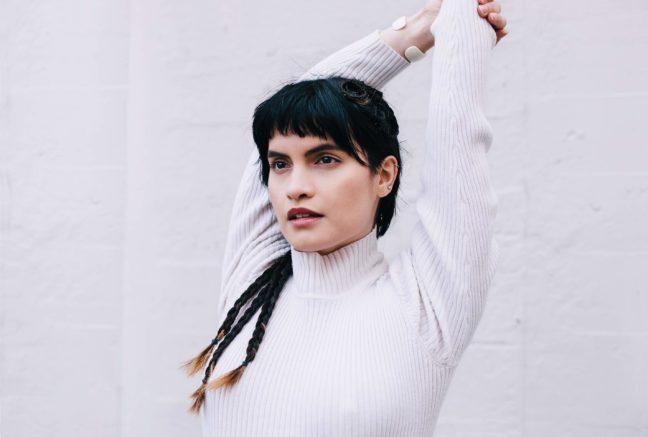Briana Marela is set to bring her ethereal pop sound to the High Noon Saloon on September 17.
Following the release of her third album, “Call It Love,” Marela prepared to tour across parts of the UK and the U.S., including Madison.
This will be the artist’s first time in Madison, however, the trip carries a deeper weight than going just for a concert, Marela shared. Just last year, a close friend of Marela, and graduate school student in Madison, took her own life.
“I was looking forward so much to visiting her there, and she had such a really hard year last year and no one really knew. She was in such a hard place,” Marela said. “So it feels kind of sad too to visit this place where I really wanted to visit this friend, and now she won’t be there.”
As Marela wrote and released “Call It Love” later that same year, certain songs off of the album—including “Farthest Shore”—are deeply inspired by the loss and sadness Marela felt after losing her loved one.
Through combining elements of pop, electronic and experimental on “Call It Love,” Marela creates a sound that is completely individual and her own. Much like parts of her identity, Marela said, her music cannot easily be categorized or labeled.
As a mixed-race woman of color, Marela described feeling both connected and disconnected to two identities, “but being maybe not welcome” as well.
“I’m POC, but I’m mixed race, but I grew up kind of removed from a lot of my POC family; they live in a different country, they live in Peru,” Marela said. “And just being in a lot of white culture, I feel like I’m not white, but I was kind of raised in a ‘white’ way,” Marela said. “Sometimes I feel like my music is in a similar way.”
At its core, “Call It Love: is an album about love, but not in a traditional sense as one may imagine. The artist avoids writing about “love as this heteronormative fairytale fantasy,” and instead focuses on the “many different shapes love takes.”
In doing so, Marela composed a nuanced and cultivated view of love on her third album that expresses just how complicated love is—reflecting on her own views and theories on it.
“That’s very interesting to me, and I have all these funny theories about love and how love and time and creativity are all really tied together in this way where I think it is just this driving force for everything, whether or not we really completely see that,” Marela said. “I don’t know if I’ll ever be able to not write about it in some form.”
In a divisive political climate, Marela believes love and understanding are vital in connecting groups of people in solidarity.
Marela gained inspiration over the years from fellow female musicians, such as icons like Bjork and musicians she has toured with, such as Jenny Hval. Marela recalled watching Hval each night and always feeling inspired afterward.
“I look to people like Bjork, for example. She didn’t make “Vespertine” until she was like 33 or something, and I’m like ‘I have 6 years to make a cool album then,’” Marela said. “I always want my best work to be ahead of me, I think, not behind me.”
The musician hopes to constantly be growing in her field, and to always have her best work ahead of her — while still sticking to her roots and the sounds she is naturally drawn to.
Starting as a child who would create melodies in her head, she turned to singing and playing guitar — following a set ‘singer/songwriter’ trope or expectation that she said she grew up with in her community.
“I didn’t know that there were a lot of different options for accompanying myself basically,” Marela said. “I didn’t see women my age when I was younger playing in bands and stuff.”
It wasn’t until college that Marela began experimenting with ways to use computers and various other instruments and programs to compose and play her own music.
Creating representation and diversity in music is crucial to Marela, reflecting on her young life, and she goes out of her way to support and listen to other femme artists.
“Women or femme people or nonbinary people making electronic music is just always going to be probably my jam,” Marela said. “I was especially moved by Jenny, and also just by people who aren’t afraid to be a true freak and get really weird.”
While Marela will always have a distinct voice and sound, she hopes to continue experimenting with boldness, and “try to be even more unlike” herself, Marela said.
Despite the bittersweet feeling the trip to Madison may bring, Marela expressed excitement about visiting Madison for the first time and plans to visit her friend’s memorial.
“I feel like I just want to be there and hold my friend Megan in my heart. Just really try and like just have some sort of peace,” Marela said. “It’s just nice to be in the same spot she was.”


